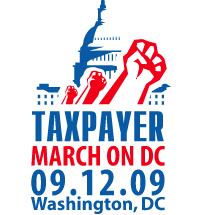It's not rocket science to conclude that whatever lowers the cost of capital formation enables workers to have more capital to work with and enjoy higher wages. Policies that raise the cost of capital formation such as capital gains taxes, low depreciation allowances and high corporate income taxes, and thereby reduce capital formation, serve not the interests of workers, investors nor consumers.Congressman McMahon is an intelligent man, it is hard to believe that he doesn't see the direction this is taking. The Congressman has to make a choice: he must vote in the best interest of his constituents, or he must vote in the best interests of Nancy Pelosi.
Taxes also reduce transactions. I need my computer repaired. You and I agree that the job is worth $200. Suppose there's the imposition of a 30% income tax on you. That means you would net only $140 and might refuse the job.
You might suggest that if I were willing to pay you $285, you would do the job because at that price your after-tax earnings will be $200 — what doing the job is worth to you.
There's a problem. The repair job was worth $200 to me, not $285. So it's my turn to say the heck with it. Or would we — and society — be better off if you and I agreed to the repair job but did not tell anybody? I'd say yes, but we'd be criminals.
You might wonder how congressmen can get away with taxes and other measures that reduce our prosperity potential. Part of the answer is the anti-business climate promoted in academia and the news media. The more important reason is that prosperity foregone is invisible.
In other words, we can never tell how much richer we would have been without today's level of congressional interference in our lives and therefore don't fight it as much as we should.
Tuesday, March 17, 2009
Higher Corporate Taxes: WE Bear The Cost...
From Walter Williams' on-the-money IBD editorial:







